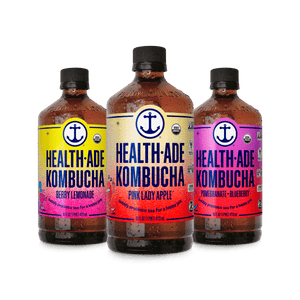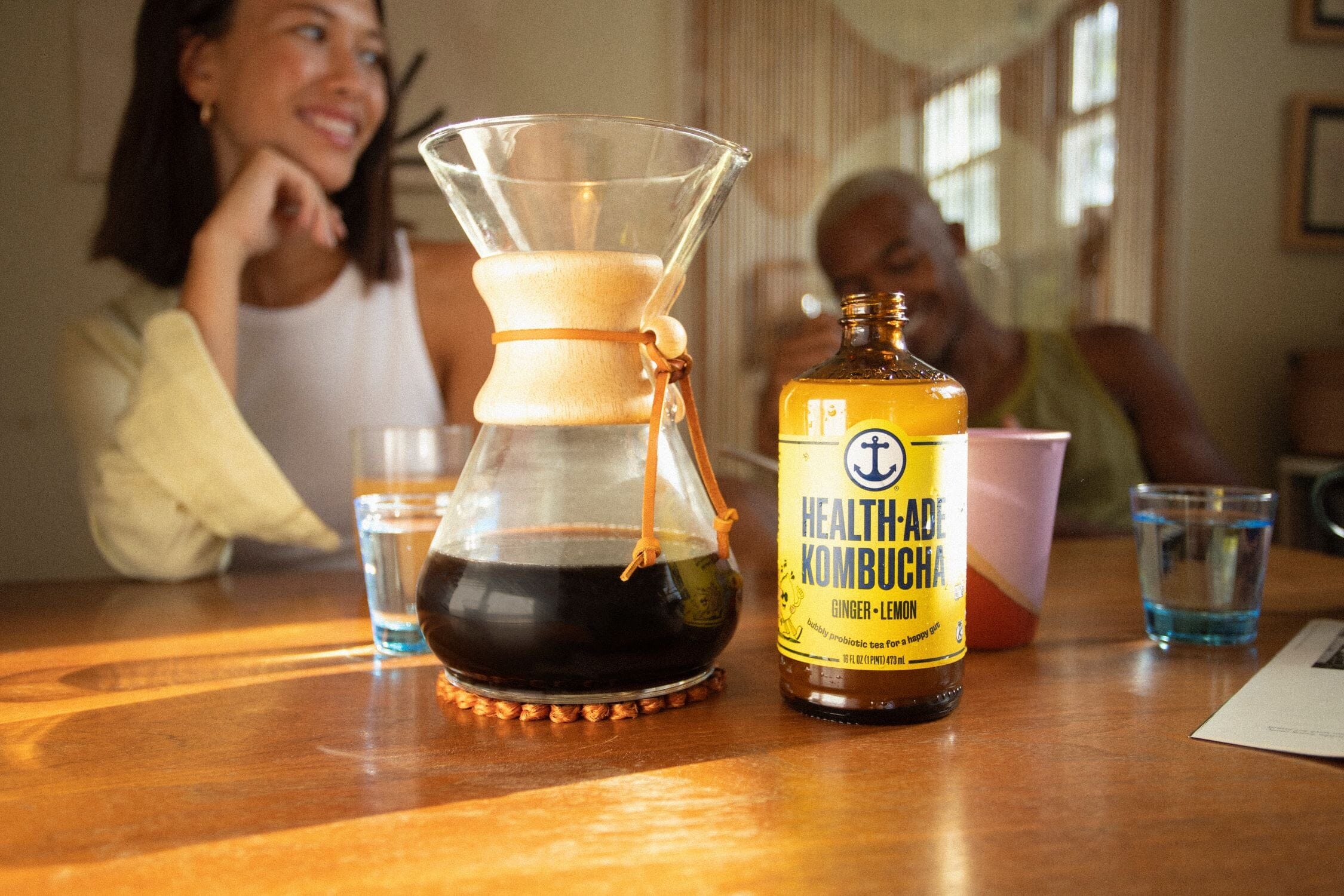
Kombucha | 12 Pack
Fan Favorite Variety Pack
One-time Purchase
49.95

Copied URL to clipboard!
If you are sensitive to caffeine – or simply trying to cut back – you likely steer clear of regular coffee and other caffeinated beverages that may make you feel jittery or keep you up at night. Those who are caffeine intolerant often opt for decaffeinated options instead, but often beverages that are low in caffeine aren’t the most delicious or exciting. In considering other flavorful beverage options, you may be wondering, does kombucha have caffeine or can you create a caffeine free kombucha?
Kombucha is commonly brewed from black or green tea, so it's true that most kombucha contains a trace amount of caffeine. While the fermentation process cuts down on the tea’s natural caffeine content, about ⅓ of the caffeine remains. So this means the caffeine content in kombucha is typically safe for those who are breastfeeding. Still, this is nowhere near the caffeine equivalent of a cup of regular coffee.
After the fermentation process, Kombucha is typically thought to contain roughly ⅓ of the caffeine from the tea. This means that if an 8-ounce service of kombucha is steeped from a green tea that originally has 30 milligrams of caffeine, then you can likely expect this kombucha to have roughly 10 milligrams of caffeine instead since much of it is lost in the fermentation process.
It can be difficult to have an exact estimate of how much caffeine is in kombucha as there are multiple factors that will impact the caffeine content. The amount of caffeine will also vary depending on the brand of caffeine. The overall caffeine content in Kombucha can vary dramatically based on a few of the following factors.
There are multiple different factors that can impact how much caffeine is in kombucha. If you are looking for kombucha with less caffeine or are looking for kombucha with more caffeine, then we recommend you take a look at the factors below.
The longer the tea brews, the more caffeine is leached out of the tea leaves. The concentration will depend on how it is prepared. So if you are looking for kombucha that has less caffeine then you can look for kombucha brands that don't steep their tea leaves for as long.
Fermentation also plays a role in the amount of caffeine you’ll find in kombucha. The longer the kombucha is allowed to ferment, the more sugar and caffeine are consumed by the yeast and bacteria. There are also chemical reactions that occur and reduce the amount of caffeine. A good rule of thumb is that kombucha contains around one-third the amount of caffeine as the tea used to prepare it. The exact amount of caffeine found in a kombucha will vary by brand, the ingredients used, and the fermentation process.
Because kombucha tea tends to have a relatively low amount of caffeine compared to regular coffee and tea, many people enjoy kombucha without worrying that it will keep them up at night. However, it’s always best to be your own health advocate and find out how much caffeine is in the beverage. Every person is different, so you may just have to try it out and see if it makes you feel good.
Health-Ade kombucha contains anywhere between 8mg-15mg of caffeine per serving depending on the flavor. When compared to regular coffee with around 100mg of caffeine, kombucha is refreshing, low caffeine option. So while it’s not an entirely caffeine-free beverage, it can be a good option for those looking to lower their caffeine intake while still enjoying a robustly flavored beverage with a host of health benefits. Check out the wide variety of flavors available in Health-Ade’s bubbly and tasty kombucha today.
VISIT SHOP